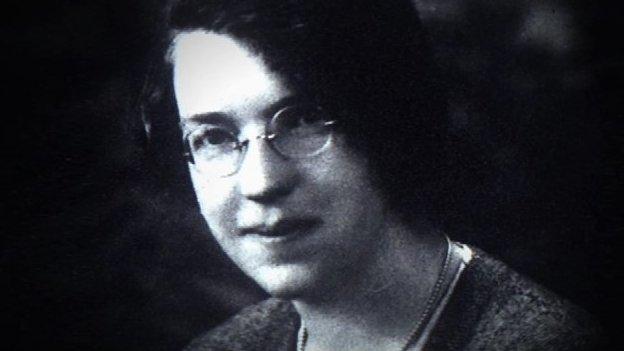Exhibition honours Scots Auschwitz victim Jane Haining
- Published
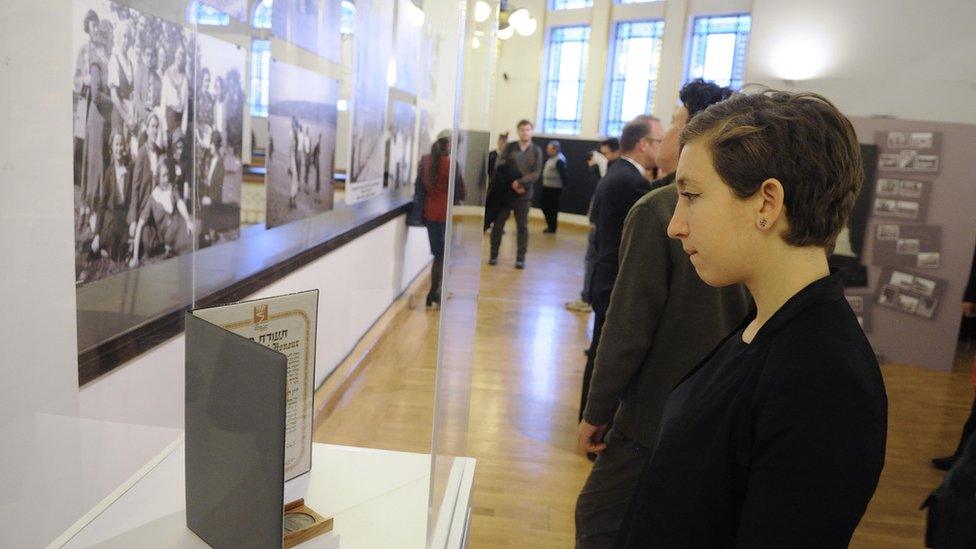
An exhibition has opened in Budapest honouring Scottish Auschwitz victim Jane Haining.
Ms Haining, a Church of Scotland missionary, was matron of a girls' home in the city, who died following the 1944 German invasion.
The exhibition, called Common Fate, marks the date she first travelled to Budapest in 1932.
Marking its opening, Scottish Secretary David Mundell said Jane Haining's story was one of "unimaginable courage".
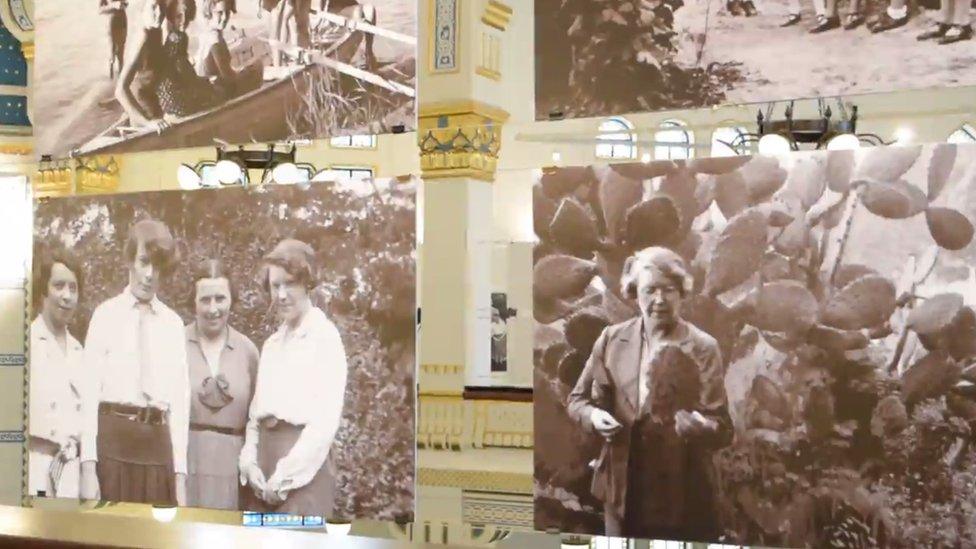
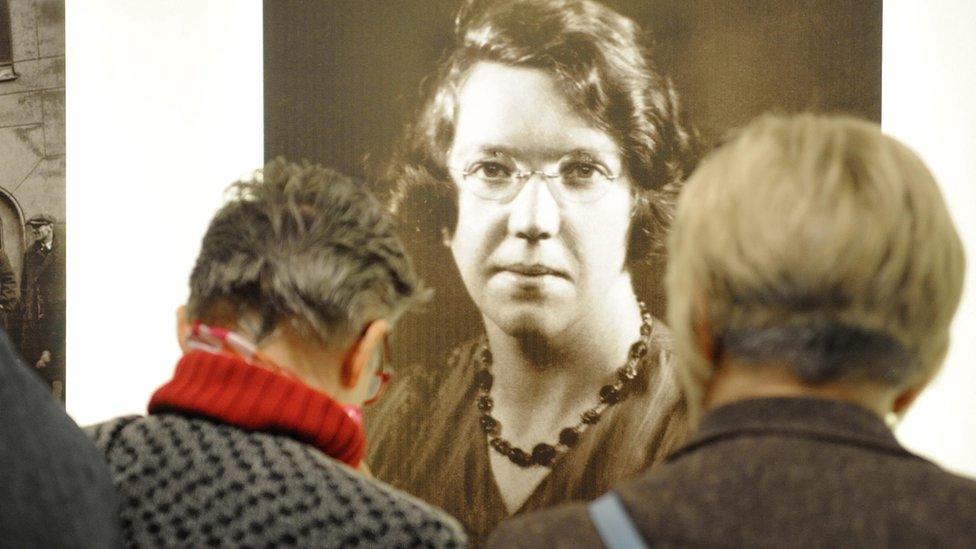
Ms Haining's girls' home was part of the Scottish Mission School. Many of the 400 girls there were from a Jewish background.
She returned to Hungary from Scotland in 1939, and declined opportunities to leave during the war, saying the children needed her in the "days of darkness".
Ms Haining was arrested at the school on 25 April, 1944, and detained by the Gestapo.
Although her students were able to escape to safety, Ms Haining was charged with working among Jews and taken to Auschwitz-Birkenau extermination camp in Nazi-occupied Poland.
She died there, aged 47.
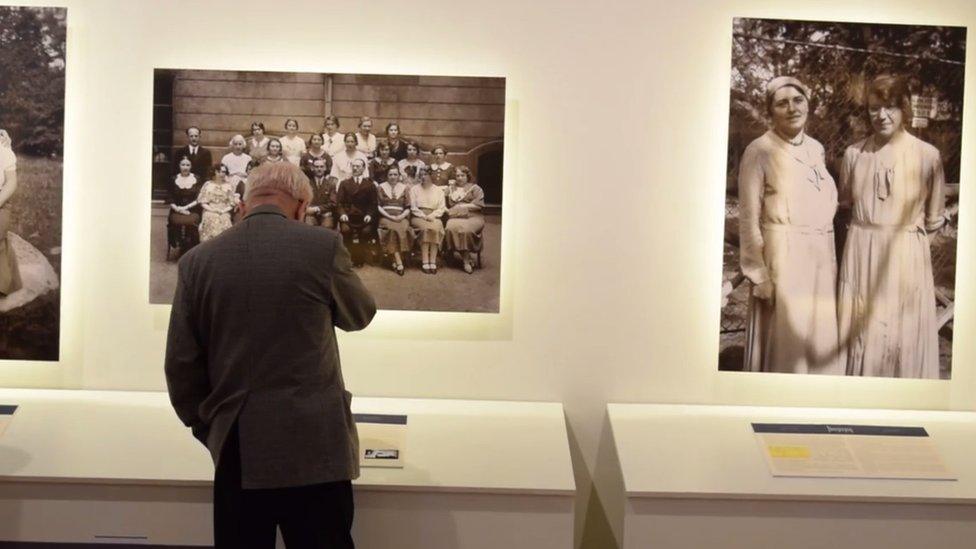
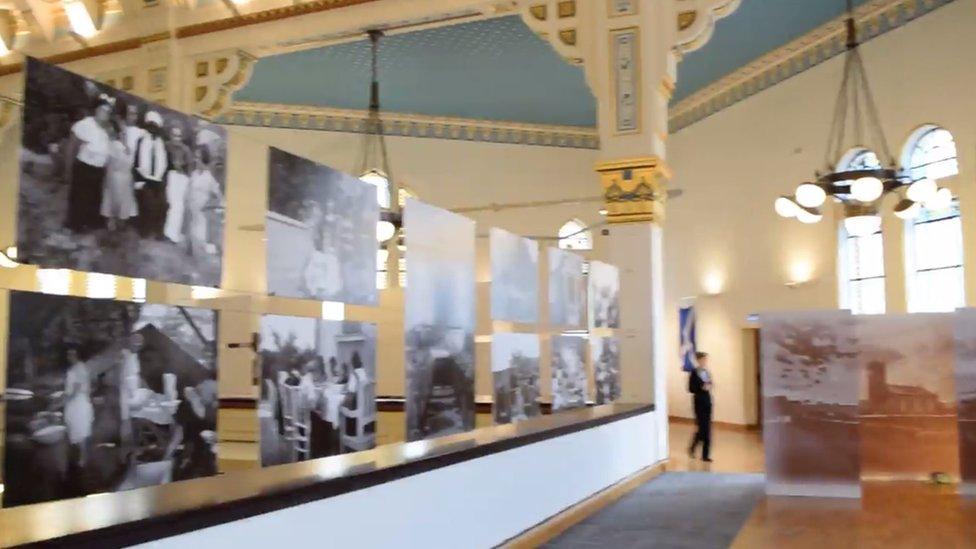
The exhibition at the Holocaust Memorial Centre in Budapest will run until March 2018.
It contains a large number of photographs, memoirs and some personal items, as well as a copy of Ms Haining's last letter from Auschwitz.
Mr Mundell said: "When we reflect on one of the darkest times in human history, it is the unimaginable courage of individuals like Jane Haining - a schoolteacher from Dunscore in Dumfriesshire - that provides us with hope and a belief in the compassion of others.
"Her dedication to her pupils was unwavering. After repeatedly refusing to leave Hungary, she wrote 'if these children need me in days of sunshine, how much more do they need me in days of darkness?'
"In doing so, she gave her life to protect others from an evil that we can never allow to resurface."
- Published12 August 2017
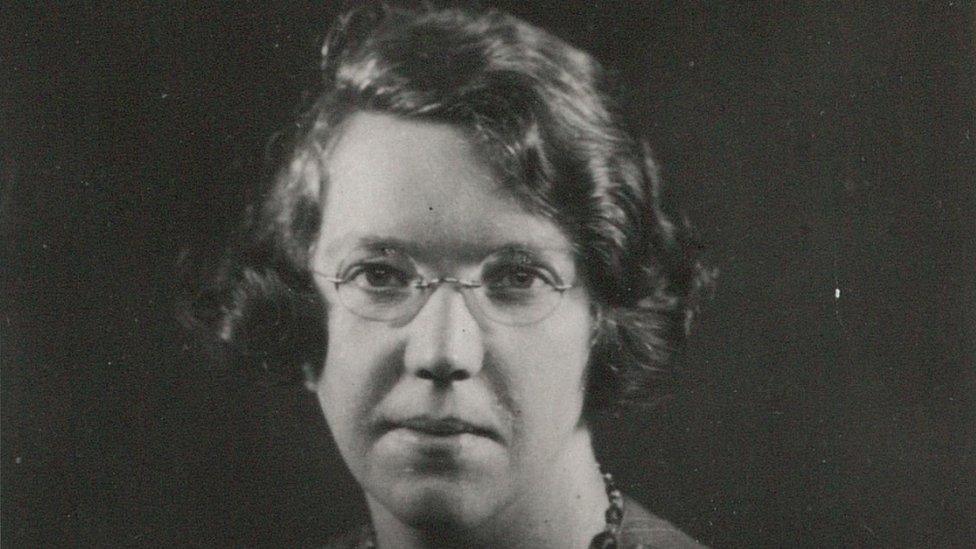
- Published14 January 2017

- Published19 November 2016
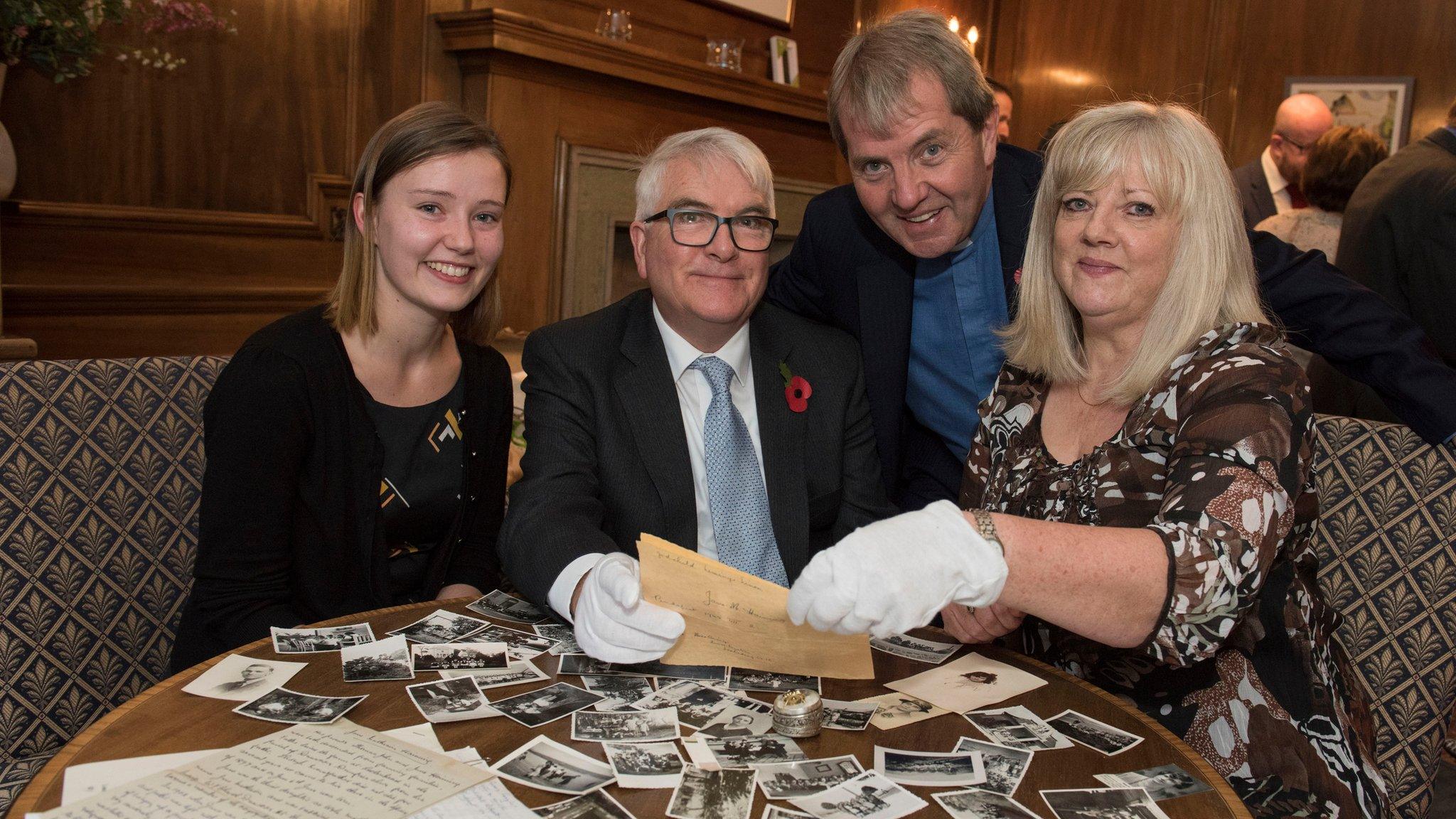
- Published30 November 2014
